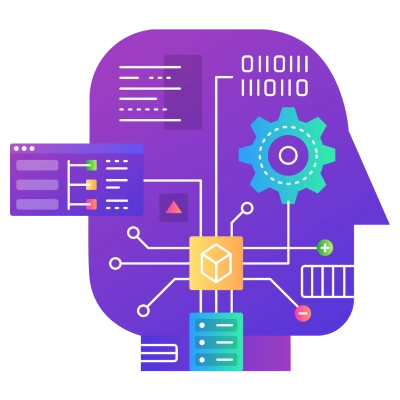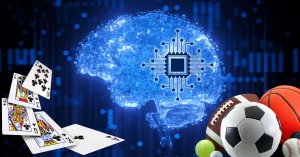Quantum Leap: How Next-Gen Computing Impacts Gambling Security

Without trust, there is no online gambling, period, point, blank. The industry is completely built on it, and players put their faith in the platforms—that slot machines are random, card shuffles are fair, and their personal data and payment info is safe and secure.
And this confidence all hinges on the algorithms and encryption methods that are designed for classical computers! You know, the olden days machines that process info by using binary bits (0s and 1s). Yes, we’re used to the way things have always been done, but there’s a technological revolution right around the corner, and it’s called quantum computing. It could be a change in the paradigm that could possibly render today’s security systems obsolete or, perhaps, usher in an era of unprecedented fairness and transparency.
The thing with quantum computers is that they don’t just calculate faster; they operate on the principles of quantum physics, and that enables them to solve all of the problems that classical machines can’t. In terms of online gambling, this means two possible futures:
- One where games are provably fair and data is locked behind unbreakable quantum encryption.
- Another where hackers can exploit quantum power to predict outcomes, drain accounts, and destabilize entire platforms. Yikes!
If this comes to pass, the urgency for the gambling industry to adapt cannot be overstated. And since we are in the business of all things gambling, we want to explain just how quantum computing works, how it could disrupt or improve online gambling, and what players, casinos, and regulators have to do to get ready for it!
Understanding Quantum Computing and Its Power
Okay, first up: In order to grasp what impact quantum computing could have on gambling, we have to find out what it is and how it works!
What Is Quantum Computing?
Quantum computing introduces two basic concepts that make it different from classical computing, and they are as follows:
Qubits: The Building Blocks
Classical computers use bits, which are the teeny switches that are either on (1) or off (0). Quantum computers use qubits, which can exist in a state called superposition, meaning that they’re 0, 1, or both simultaneously. Let’s say you are spinning a coin: while it’s in the air, it’s neither heads nor tails, but it has the potential to be both.
Entanglement: The Quantum Link
When qubits become entangled, their states are interconnected. Change one? The other instantly shows that change—even if they’re miles apart. The phenomenon, which was dubbed the “spooky action at a distance” by Einstein, enables quantum computers to process interconnected data at truly unprecedented speeds.
How Quantum Computing Differs from Traditional Computing
The differences between quantum and traditional computing are evident in a few different areas, and we break them down below!
- Parallel Processing Power: Classical computers solve problems sequentially, which is comparable to flipping through a book page by page. Quantum computers can read every page at once. A quantum machine could crack an encryption code by testing all possible solutions simultaneously.
- Breaking Mathematical Barriers: Most encryption methods (e.g., RSA) all depend on the difficulty of factoring large prime numbers—a task that would take classical computers centuries to do. Quantum algorithms like Shor’s algorithm can solve this problem in minutes.
- Why This Matters for Gambling: Quantum computers could dismantle the security systems that are in place to protect player data and game integrity. On the other hand, they could also create new (and better) standards for fairness and transparency.
Current Use of Algorithms in Online Gambling
Almost every industry is now leveraging algorithms, and gambling sites are one of the earliest adopters. They depend on them to simulate randomness, secure data, and personalize all players’ experiences. How do these systems work, and why are they vulnerable?
How Online Casinos Use Algorithms Today
Gambling sites all rely on two main algorithmic systems to keep up operations, and they are the following:
- Random Number Generators (RNGs): RNGs are the heartbeat of digital gambling. They determine slot machine outcomes, card shuffles, and dice rolls. Most RNGs are pseudo-random, meaning they use mathematical formulas to produce sequences that appear random but are entirely predictable if the algorithm is known. A slot machine’s RNG cycles through millions of numbers per second. When you hit that “spin” button, it stops at a number that has been mapped to a specific outcome (e.g., cherry symbols or a jackpot).

- AI and Machine Learning: Casinos deploy AI to detect fraud, analyze player behavior, and, of course, optimize marketing. This is where machine learning models might flag a player who suddenly wins 10 consecutive blackjack hands as a potential cheater.
Security and Encryption in Online Gambling
Security in online gambling is upheld through a few different methods, such as the ones that are listed below:
- Encryption Standards: Financial transactions and player data are secured using methods like RSA and AES encryption. RSA relies on the mathematical complexity of factoring large prime numbers—a task that’s impractical for classical computers but no big deal for quantum machines.
- Current Vulnerabilities: Even without the threats that are posed by quantum computing, today’s systems are imperfect. Hackers are exploiting phishing scams, software bugs, and insider access to breach accounts. In 2020, a major casino platform suffered a data leak that exposed millions of player records, and that is a stark reminder of what exactly is at stake.
The Potential Disruption of Quantum Computing in Gambling
In the case of quantum computing, it could either fortify or fracture the gambling industry. We discuss both scenarios to see what’s what!
Cracking Current Gambling Algorithms
Quantum computing already poses a lot of threats to current systems, like:
- Predicting “Random” Outcomes: Quantum computers could reverse engineer RNG algorithms, exposing their deterministic patterns. A hacker might be able to calculate the exact moment a progressive slot jackpot will hit and time their spin to nab it.
- Decrypting Sensitive Data: RSA encryption, which is used to protect credit card details and bets, could be cracked by quantum machines in a matter of hours. A breach of this scale would expose player histories, financial data, and even internal casino algorithms.
- Hypothetical Scenario: A quantum-powered hacker decrypts a casino’s transaction database, stealing millions in player funds before the breach is even detected.
The Race for Quantum-Secure Gambling Algorithms
In response to the threats that are posed by quantum computing, the gambling industry is exploring a few innovative solutions, including the following:
- Post-Quantum Cryptography: Researchers are developing encryption methods that are resistant to quantum attacks. Lattice-based cryptography is one example, and it relies on complex geometric problems that even quantum computers have a hard time solving. And companies like Google and Cloudflare are already testing out these types of systems.
- Quantum RNGs (QRNGs): QRNGs leverage quantum phenomena (e.g., measuring the random behavior of photons) to generate true randomness. Unlike pseudo-RNGs, QRNGs are immune to prediction or manipulation.
- Case Study: In 2021, the University of Geneva demonstrated a QRNG that produced randomness by measuring quantum fluctuations in a laser beam. A laser beam!
Quantum Computing and Fair Play: A Double-Edged Sword
Quantum technology indeed has the power to redefine fairness in gambling—but just like fire, it can warm or it can burn. Yes, it promises to improve trust via transparency, but it also introduces some very real risks that could shake the industry’s foundations. Next up, we explore how quantum advancements could move the needle toward more integrity—or mayhem.
The Positive Side: Improving Fairness and Transparency
Quantum breakthroughs could address the age-old suspicions that players have about fairness, with tools to rebuild player confidence. Below are the innovations that could change the game:
This would be a place where every single card shuffle, dice roll, or slot spin is backed by irrefutable proof of fairness. Quantum RNGs (QRNGs) use the inherent unpredictability of quantum mechanics, which is like measuring the erratic movements of photons, to generate numbers that are actually random, not just algorithmically disguised.
– How It Works: QRNGs tap into natural quantum phenomena, like the random decay of particles or fluctuations in a vacuum, in order to create outcomes that no algorithm can predict.
– Player Empowerment: Platforms could offer players a “quantum audit trail,” which would let them verify in real time that their blackjack hand wasn’t preordained.
– Case Study: Blockchain casinos like FunFair are already using cryptographic checks to prove fairness. Pair this with QRNGs? And you’ve got a system where trust is baked into every byte.
Gambling sites that adopt quantum-resistant encryption could turn into digital fortresses. Techniques like lattice-based cryptography—which hides data in complex geometric puzzles—or hash-based signatures could lock down player data against even the most advanced attacks.
Brands touting “quantum-secure” platforms would be able to bring in players that are exhausted from reading (and worrying) about data breaches. What if a casino could guarantee that your bets are shielded by tech that even Einstein couldn’t crack? Who wouldn’t want to play there?
– Future-Proof Compliance: As regulators tighten cybersecurity rules, the early adopters of quantum-safe practices could dodge fines and earn a lot of reputational clout.
The Negative Side: Quantum Hacking and Vulnerabilities
But where there’s light, there’s also shadow. Quantum advancements would also arm bad actors with tools to exploit systems in once-unthinkable ways.
Malicious players or groups that have access to quantum computing? Well, they could completely change how to cheat by doing the following:
– Jackpot Hijacking: Modern slot machines all rely on RNGs that follow mathematical rhythms. Quantum computers would be able to decode these patterns, which would let hackers predict—and claim—jackpots before legit players.
– Data Heists on Adderall: RSA encryption, which is the foundation of online security, could collapse in hours under quantum attacks. Bettors could wake up to drained accounts and leaked betting histories; and all because a quantum hacker sliced through encryption like a knife through warm butter.
– AI Manipulation: Casinos are now using AI to sniff out fraud, like players winning 20 roulette spins in a row. Quantum tools could take apart the AI models and teach cheats how to fly under the radar while they are fleecing the house.
Quantum risks wouldn’t just come from the outside—there could be insider attacks by dishonest employees who have quantum resources, and here’s what they could do:
– Rig the System: Mess with the RNGs to favor specific outcomes and divert profits from high-stakes tables.
– Ghost Transactions: Use quantum decryption to bypass audits while they move funds into shadow accounts without triggering any kind of suspicion or alarms.
The Future of Gambling in a Quantum Era
So now, the gambling industry would appear to be standing at a crossroads. What does it need to do to negotiate the quantum future? See what we found out below!
Regulatory Challenges and Industry Adaptation
It can’t rest on its laurels—the gambling industry has to address a lot of regulatory and technological challenges, like the following:
- New Standards for Fairness – Regulators like the UK Gambling Commission and Malta Gaming Authority may mandate quantum-resistant encryption and QRNG certifications. Failure to comply? That can mean big fines or even casino license revocations.
- Blockchain and Decentralization – Decentralized platforms (e.g., Ethereum-based casinos) could use quantum-proof blockchains to record bets in the most transparent way possible. Every transaction would be immutable and publicly verifiable, and that decreases the risk of fraud.
When Will Quantum Computing Become a Real Threat?
We need to talk brass tacks because quantum computing isn’t some far-off thing that may or may not happen—it’s coming, and it’s only a matter of “when.” What do you need to know about the timeline, and why waiting to act on it might be a billion-dollar mistake for gambling sites!
Timeline
Experts have all agreed that quantum computers that are capable of cracking RSA encryption could be here by 2035. That’s not a typo. We’re talking 10 years before hackers could wield machines that turn today’s “unbreakable” security into a bike lock. And industries can’t just wait around until 2034 to start prepping—retrofitting systems for quantum safety could take a decade.
If you build a floodwall after the storm hits, it’s no good to anyone. And that’s what casinos are risking by delaying quantum upgrades. Migrating to quantum-safe encryption could take 8–10 years of testing, debugging, and regulatory hoop-jumping. The industry can either start now or drown later.
Early Adopters
If casinos are dragging their feet, we understand, but beware because other sectors are already ahead. Let’s take a peek at who’s in front and what gambling can learn from their playbook!
Companies like IBM and Microsoft aren’t dabbling in quantum-safe tech—they’re going all in.
| Sector | Details |
|---|---|
IBM’s Quantum Safe Initiative | IBM’s already testing lattice-based encryption with banks and governments. Translation: They’re stress-testing new locks before the quantum burglars show up. |
Microsoft’s Post-Quantum Playbook | Microsoft’s integrating quantum-resistant algorithms into Azure, which is its cloud platform. For casinos, this could mean plug-and-play security upgrades—if they’re willing to pay the price. |
Banks | JPMorgan Chase is simulating quantum attacks to find weak spots in transaction systems. Their takeaway? Legacy systems are basically sitting ducks. |
Hospitals | The Cleveland Clinic is piloting quantum-safe encryption for patient records. If hackers can steal your medical history, why would casinos think that your bet history is safe? |
Lessons from the Frontlines
- Collaborate or Collapse: Partner with quantum security firms! If a casino teamed up with IBM to brandish a “Quantum-Proof Certified” badge, you’d feel safer, right? Right!
- Small Steps, Big Gains: Start with QRNGs for the high-stakes games. Prove fairness first, then scale up.
- The Cost of Complacency: Wait until 2030, and the price tag for quantum upgrades could balloon. Even worse? Your players may flee to rival online casinos that did take the steps to prioritize their safety.
Quantum computing’s timeline isn’t some distant rumor—it’s a countdown. By 2035, the gambling industry might be facing a perfect storm: hackers that are armed with quantum tools, regulators who are demanding quantum-proofing, and players that bounce from “unsafe” platforms.
The choice is pretty stark for the gambling industry, and it has two options:
- Option 1: Start now. Invest in quantum R&D, partner with pioneers, and turn security into a marketing weapon.
- Option 2: Keep hitting that snooze button, cross your fingers and toes, and pray that the quantum storm misses you.
Quantum Computing: A Game-Changer or a Threat to Gambling?
Is quantum computing a friend or foe to gambling sites? Only time will tell! But one thing is for sure—if and when it is integrated into casinos, it will no doubt change the industry. The outcome? It all will come down to if platforms are prepared or not.
Let’s do a quick debrief on what quantum computing could mean for online gambling:
- Opportunities: Unhackable encryption, provably fair games, and better player trust.
- Risks: Data breaches, rigged outcomes, and regulatory penalties for unprepared casinos.
- The Way Forward: Invest in quantum-resistant tech, collaborate with regulators, and educate all players.
The gambling industry has a really narrow window to adapt. Gambling sites that embrace quantum innovation could rule the roost; but those that delay? They are at risk of irrelevance—or worse, they could collapse under the weight of quantum-powered attacks.
If you want the latest cutting-edge insights into quantum computing and gambling, check out our GamblingSite.com Blog!

Alyssa contributes sportsbook/online casino reviews, but she also stays on top of any industry news, precisely that of the sports betting market. She’s been an avid sports bettor for many years and has experienced success in growing her bankroll by striking when the iron was hot. In particular, she loves betting on football and basketball at the professional and college levels.








